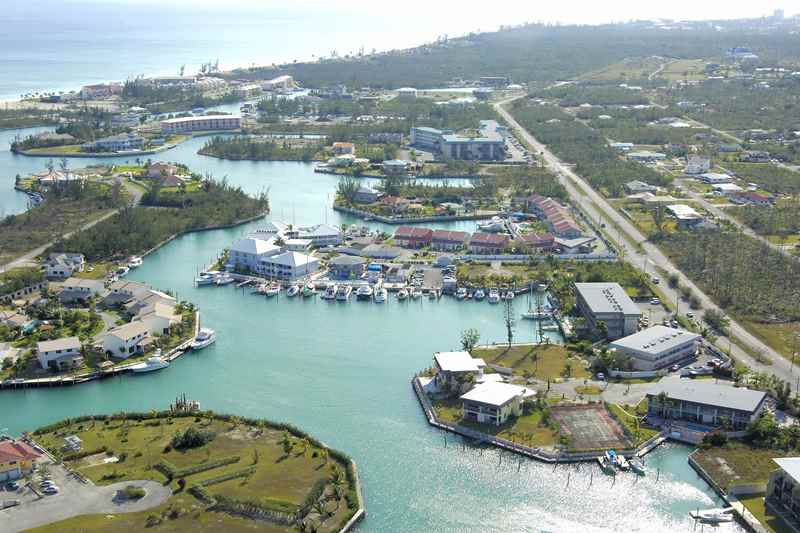Introduction.
Welcome to the world of marine engineering, where a small but mighty hero plays a pivotal role in keeping your vessel afloat and agile: the boat impeller. These unassuming components are at the heart of ensuring that your marine engine operates smoothly and efficiently.
The Lifeline of Marine Engines.
Consider your boat’s engine as the beating heart of your aquatic adventures. Just like the human heart relies on arteries to pump blood, your boat’s engine depends on an impeller to circulate water and prevent overheating. Without a properly functioning impeller, an engine can quickly succumb to the ravages of heat, leading to damage or even total failure. You better have boat insurance as an impeller’s importance in marine engines cannot be overstated. If it fails it’s the guardian against the harsh, unforgiving nature of thermal stress and your boat may be in major danger.
In This Article
Ensuring Engine Health and Performance.
The impeller is more than just a cooling component. It’s a performance enhancer. By maintaining the right temperature, an impeller allows marine engines to run at optimal conditions, giving you the power and reliability needed to slice through the waves. The right impeller kit ensures that your engine doesn’t skip a beat, providing the peace of mind that comes with knowing your vessel is performing at its best. In this delicate ecosystem, the impeller stands as a silent sentinel, guarding against the potential pitfalls of overheating.
Embarking on a Buyer’s Journey.
Selecting the right boat impeller kit is a crucial decision for any boat owner. It’s not just about buying a spare part. It’s about investing in your vessel’s future performance and longevity. As we delve into the intricacies of boat impeller, we aim to equip you with the knowledge necessary to make an informed choice. From understanding what makes up an impeller to appreciating the subtle differences that can impact your engine’s health, this guide will navigate you through the vast sea of options to find your perfect match.
Understanding Boat Impeller (‘What’).
What exactly is a boat impeller? How do they contribute to the heart of a marine engine? Just like the human heart ensures that blood flows through our bodies, a boat impeller is crucial for pumping water around the engine to keep it cool during operation. The significance of this function cannot be overstated. Without a functioning impeller, an engine can overheat, leading to potential damage or failure. Let’s dive into the specifics of these essential components.
The Function of a Boat Impeller in Marine Engines.
A boat impeller is akin to the unsung heroes of the marine world. They sit snugly within the water pump, drawing water from outside the boat and circulating it through the engine’s cooling system. This process is vital as it dissipates heat generated by the engine, maintaining an optimal operating temperature. Should the impeller fail, the risk of overheating and damaging the engine increases significantly—a scenario no boater wants to encounter.
Different Types of Boat Impeller and Their Applications.
Not all kinds of boat impeller are created equal, and understanding the various types available is key in making an informed purchase. The market offers several kinds, including flexible vane, rigid vane, and screw impeller, each suited to different marine environments and engines. A flexible vane impeller, made of soft and pliable materials, are commonly used because they can handle small debris without suffering damage. A rigid vane impeller, on the other hand, are better suited for cleaner water conditions. A screw impeller is less common but excel in handling viscous fluids or those containing a high level of particulate matter. Selecting the right type is instrumental in ensuring your engine’s needs are met with precision.
Materials Matter: The Impact on Performance.
The materials used in manufacturing a boat impeller affect their durability and performance. Common materials include neoprene, nitrile, and silicone—each with its own set of benefits. Neoprene impellers are versatile and suitable for general water pumping tasks, while nitrile variants offer superior resistance to oil and hydrocarbons, making them ideal for oil transfer applications. Silicone impellers boast high-temperature resistance, which can be advantageous in particularly demanding engine conditions. It’s important to choose a material that not only matches the liquid being pumped but also corresponds with the typical operating environment of your vessel.
In essence, understanding the ‘what’ of boat impeller kits involves recognizing their role in an engine’s well-being, the diversity of types tailored to specific conditions, and the material considerations that influence their performance. With this knowledge, you’re better equipped to make choices that will extend the life of your marine engine and enhance your boating experience.
Benefits of Choosing the Right Boat Impeller.
Have you ever wondered why selecting the right boat impeller is so critical? It’s not just a trivial piece of your boat’s engine. It’s the heart of the cooling system — and the consequences of using the wrong one can be dire. Let’s explore what happens when an impeller fails to match its marine engine and how the right choice can lead to smoother sailing.
Consequences of Incorrect Impeller Use.
Imagine setting sail on a pristine day, only to have your journey cut short by boat engine failure. This scenario is often the result of using an impeller kit that doesn’t fit the specific needs of your marine engine. The wrong size or type of impeller can cause inadequate water flow, leading to overheating, which is the primary enemy of any engine. Overheating not only damages internal components but can also result in complete engine shutdown. Furthermore, an incompatible impeller service kits materials can wear out quickly or even disintegrate, leaving debris that clogs the cooling system and causes additional damage.
Enhancing Engine Efficiency and Longevity.
Now, let’s pivot to the positives. A correctly chosen impeller ensures optimal water circulation through the engine’s cooling system, maintaining the engine temperature at safe levels even during extended use. This optimal performance translates to improved fuel efficiency since a well-cooled m-series engine doesn’t have to work as hard to operate smoothly. Moreover, the right impeller reduces the risk of breakdowns and extends the overall life of the engine. Think of it as investing in the longevity of your vessel — a decision that will pay dividends in the form of reliable outings and uninterrupted enjoyment on the water.
Financial Implications of Quality Impeller.
Lastly, let’s talk about money. Investing in a high-quality boat impeller might seem like an added expense upfront, but it’s actually a cost-saving move in the long run. Consider the costs associated with emergency tows, repairs, and potential engine replacements due to overheating — these can quickly surpass the price of a premium impeller. Additionally, since the right impeller contributes to better fuel economy, you’ll save on gas costs over time. As the saying goes, “The bitter taste of poor quality remains long after the sweetness of low price is forgotten.” In other words, skimping on your impeller is a gamble that could end up costing you far more than the initial savings.
Factors to Consider When Buying a Boat Impeller.
Zeroing in on the right boat impeller is akin to finding the perfect key for a lock. It’s not just any component. It’s the heart of your marine engine’s cooling system, pumping life through your motor with every rotation. Let’s navigate through the intricacies of choosing an impeller that’s not only compatible but also promises enduring performance, guiding you towards a purchase that ensures smooth sailing.
Engine Compatibility and Impeller Size.
The first port of call when selecting a boat impeller is confirming its compatibility with your engine. Manufacturers often design impellers with specific engines in mind, and using an ill-fitting model can spell disaster for your vessel. It’s essential to consult your engine’s manual or seek advice from a professional to pinpoint the exact size and model you need. Impeller size, measured in dimensions such as diameter and depth, should correspond precisely to the specifications laid out by the engine maker. An improperly sized impeller can lead to inadequate water flow, resulting in overheating and diminished engine performance.
Maintenance Requirements and Durability.
A robust impeller ensures that your vessel’s engine operates at peak efficiency, but it doesn’t stop at installation. Every impeller necessitates routine maintenance to combat wear and tear. The material it’s made from—be it neoprene, nitrile, or silicone—plays a pivotal role in both its longevity and suitability to different water conditions. Neoprene impellers are versatile and widely used but may degrade quicker in oily conditions. Nitrile impellers provide resistance to oil and hydrocarbons, making them ideal for diesel engines. Silicone, on the other hand, stands up well against both heat and chemical corrosion. Understanding these nuances helps you choose an impeller that won’t just fit but will last, keeping maintenance to a minimum.
Purchasing Reliable A Boat Impeller.
Finding a reputable dealer is the final piece of the puzzle when purchasing a boat impeller. Whether you’re browsing online or in a brick-and-mortar store, look for suppliers who offer products from established manufacturers. Renowned brands are more likely to produce impellers that meet stringent quality standards, ensuring reliability and performance. Read customer reviews and seek recommendations from fellow boating enthusiasts to gauge the credibility of the supplier. Additionally, check for a valid warranty or guarantee, which can serve as a testament to the product’s durability and the manufacturer’s confidence in their impeller.
With these insights, you’re well-equipped to steer towards the perfect impeller for your marine engine. Remember, investing time in research and consulting experts can prevent costly mistakes and keep your vessel performing at its best. As you embark on this crucial step, consider the engine’s needs, prioritize maintenance ease, and secure your purchase from a trustworthy source. Happy sailing!
Conclusion and Call-to-Action.
As we venture towards the end of our informative journey through the world of boat impeller, it’s time to anchor down the knowledge we’ve gathered. Throughout this post, we’ve navigated the crucial role that boat impellers play in the health of marine engines, from ensuring proper engine cooling to optimizing overall performance. We’ve explored what boat impellers are, the various types available, and the importance of material choice in their manufacturing.
It’s clear now that choosing the right boat impeller isn’t just a matter of preference—it’s an essential step in safeguarding your marine engine’s efficiency and lifespan. The wrong impeller can lead to overheating, poor performance, and even costly repairs. In contrast, the correct impeller serves as the heartbeat of your vessel, maintaining a cool and steady rhythm for your engine’s operations.
But why should this matter to you? Because every skipper knows that the sea is unforgiving, and your preparation at the dock determines your success on the waves. Investing in a quality boat impeller translates to uninterrupted adventures and savings in potential repair costs—making it not just a purchase, but a smart nautical investment.
Recap of the Voyage.
- We learned that an impeller’s role extends beyond mere movement of water—it’s integral to the engine’s cooling system and overall health.
- Understanding the different types of impellers and their applications can prevent the headaches of mismatched parts and inefficiency.
- The materials used in impeller construction have direct effects on performance, with robust materials like neoprene and nitrile rubber leading the pack.
Navigating Your Impeller Purchase.
Before you set sail on your next aquatic excursion, take a moment to inspect your vessel’s heart—the impeller. Remember, compatibility with your engine and the size of the impeller are as important as the waters you traverse. Regular maintenance checks and replacements are the compass by which you’ll navigate to avoid the storms of sudden engine failure.
Charting Your Course Forward.
We encourage you, intrepid mariners, to prioritize the selection of the right boat impeller. Let the insights and tips provided here be your guiding star as you make your choice. When in doubt, consult the manuals, seek the wisdom of seasoned sailors, or reach out to professionals who can provide tailored advice for your specific engine needs.
Finally, take the helm and steer towards further education and expert counsel. The vast ocean of resources awaits to deepen your understanding and ensure your maritime ventures are as smooth as the calmest sea.
With the wind in your sails and the right impeller in your engine, you’re ready to conquer the tides. So, embark on your next voyage with confidence, knowing that your attention to detail is good.












